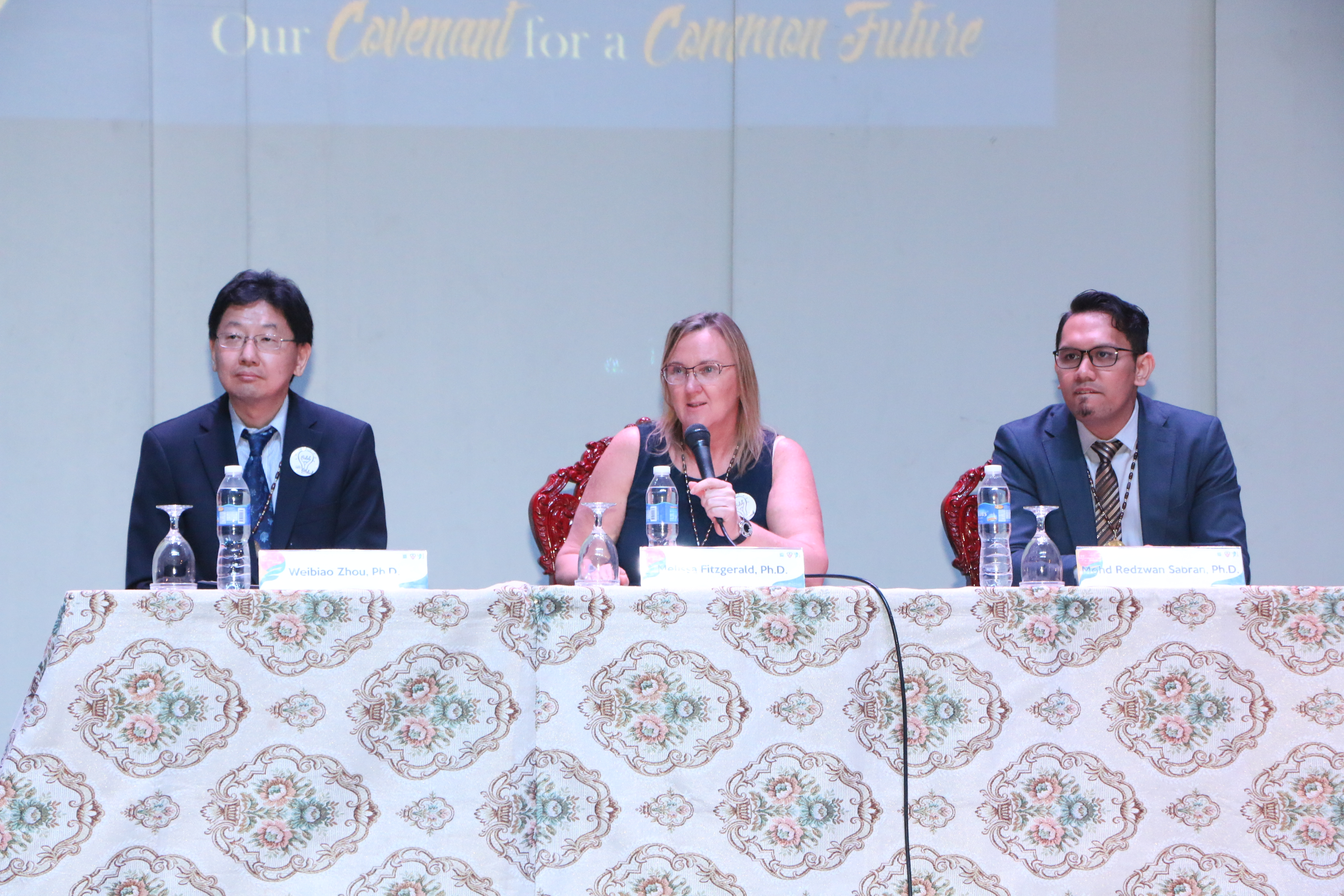

Dr. Fitzgerald (center) responding to a question during the open forum
while Dr. Zhou (left) and Dr. Sabran (right) listen
The UST College of Education celebrated its 91st founding anniversary on April 18 – 29, 2017 with the theme Education for Ecological Citizenship: Our Covenant for a Common Future. One of the highlights of the said celebration was the Food Technology and Nutrition and Dietetics Colloquy held at the UST Medicine Auditorium last April 26, 2016 with the theme “Functional Foods: Notions, Functions and Directions”.
The first research presented in the said event was from Prof. Weibiao Zhou, Ph.D., Director of the Food Science and Technology Program in the National University of Singapore. The research was entitled, "Functional Food Development: Potential of Novel Food Processing Technologies". Weibiao explained the concept of functional foods and tackled the effects of food processing technologies on food development. His study sought to find different processing methods to produce innovative functional foods.
Prof. Melissa Anne Fitzgerald, Ph.D., the Australian Food and Grocery Council Chair to the Food Science and Technology from the University of Queensland, Australia, presented her research entitled, “Combining metabolomics and genomics to dissect rice quality, and provide robust and trait-relevant tools to rice breeders”. She tackled the case of aromatic rice and its effects on domestic and international consumers. Fitzgerald dwelled on the compounds that make up the aromatic rice in which she chose jasmine rice as her subject of study. She focused on the objectives of finding the sensory traits that are consisted in jasmine rice, finding the compounds that affects these sensory traits, and finding out the short sequence of DNA found in these traits. It was found out that the compounds, metabolomics and genomics, affect the biochemistry of the aroma of jasmine rice and that the findings in the study were all handed down to the Australian rice breeding program.
The third and final presentation came from Prof. Mohd Redzwan Sabran, Ph.D., a senior lecturer of the Department of Nutrition and Dietetics from the Universiti Putra Malaysia. In collaboration with the University of Georgia in the USA, his study was mainly about aflatoxin which is a food contaminant produced by Aspergillus species of fungi found in many food commodities. In his study, he elaborated how probiotics could aid in the absorption of aflatoxin in foods. Through probiotics, the class of toxic compounds defined in the study could help in transforming or developing food products into a more safe and healthier quality.
The colloquy on Functional Foods: Notions, Functions and Directions was an overall success. Various studies discussed shed light on matters such as food processing innovations; effects of aromatic rice; and the role of probiotics in fighting aflatoxins. Summarily, functional foods can aid people by providing health benefits beyond the basic nutrition needs.